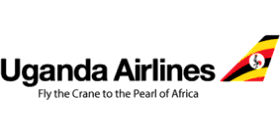 Uganda Airlines Sets Sights on A320 Expansion and Strategic Advisory Partnership
Uganda Airlines Sets Sights on A320 Expansion and Strategic Advisory Partnership
Uganda Airlines is charting a bold new course in its fleet development strategy, with plans to introduce two Airbus A320-family aircraft through dry lease arrangements. This move, now scheduled for February 2026—a shift from the previously anticipated mid-2025 timeline—signals a significant step in the airline’s ambition to modernize and diversify its operational capabilities. The carrier is actively seeking either A320neo/A321neo models under nine years old or A320ceo/A321ceo aircraft up to 15 years old, with flexible lease terms ranging from two to eight years. This approach is designed to ensure both operational agility and cost efficiency as Uganda Airlines positions itself for future growth.
In tandem with its fleet expansion, Uganda Airlines has launched an international tender to recruit a consultancy firm. The selected partner will provide technical, legal, and financial advisory services to guide the acquisition process, ensuring that the airline’s investment aligns with global best practices and delivers maximum value. This dual-pronged strategy reflects a growing trend among African carriers to combine fleet renewal with robust governance and expert oversight, a move that is increasingly essential in today’s competitive aviation landscape.
The
decision to pursue dry leasing for the A320 family is rooted in both
market realities and regulatory considerations. Uganda Airlines, like
many African operators, faces challenges related to aircraft
availability and lead times from manufacturers. By opting for dry
leases, the airline can quickly augment its fleet without the long wait
associated with new aircraft orders. This strategy also allows for
greater flexibility in matching capacity to demand, particularly as the
airline seeks to optimize its route network and respond to evolving
market conditions. Recent industry reports confirm that Uganda Airlines
is in active discussions with lessors for both A320neo and A321neo
models, as well as considering short-term leases for A320ceo variants to
bridge immediate capacity needs.
Operationally, the introduction of the A320 family will enable Uganda Airlines to better align its fleet with regional and medium-haul market demands. The airline’s current reliance on larger widebody aircraft, such as the Airbus A330-800, has proven effective for high-demand routes—especially those with strong cargo components, like services to Abuja, Nigeria. However, the addition of narrowbody jets will provide the flexibility to serve thinner routes more efficiently, open new destinations, and enhance frequency on existing services. This is particularly relevant for the Sub-Saharan African market, where passenger volumes can fluctuate and route profitability hinges on the right aircraft mix.
Uganda Airlines’ proactive approach to fleet management is also shaped by regulatory frameworks within the region. For example, Ugandan regulations limit ACMI (Aircraft, Crew, Maintenance, and Insurance) contracts to a maximum of six months, prompting the airline to seek longer-term dry lease solutions that offer greater stability and control.
This regulatory environment has influenced the airline’s recent leasing activities, including short-term wet leases from European providers to cover seasonal peaks and operational gaps. The move towards dry leasing represents a strategic evolution, allowing Uganda Airlines to build internal capacity and reduce reliance on external operators.
The international tender for advisory services underscores the airline’s commitment to transparency and due diligence. By engaging a consultancy with expertise in technical, legal, and financial matters, Uganda Airlines aims to navigate the complexities of aircraft acquisition with confidence. This partnership will be instrumental in evaluating lease proposals, negotiating favorable terms, and ensuring compliance with both local and international aviation standards. For African aviation stakeholders, this approach sets a benchmark for responsible fleet expansion and highlights the importance of specialized knowledge in driving sustainable growth.
Looking ahead, the planned induction of the A320 family is expected to have a ripple effect across Uganda Airlines’ operations and the broader regional aviation ecosystem. The new aircraft will not only enhance passenger comfort and operational efficiency but also support the airline’s ambitions to expand its network and strengthen its position as a key player in East Africa. For the continent’s aviation professionals, Uganda Airlines’ strategy offers valuable insights into the evolving dynamics of fleet planning, regulatory adaptation, and the integration of expert advisory services.
As the African aviation sector continues to recover and grow, the ability to adapt fleet strategies to market realities will be a defining factor for success. Uganda Airlines’ latest moves reflect a broader shift towards modernization, partnership, and strategic foresight—qualities that will shape the future of air transport across Sub-Saharan Africa. Industry observers will be watching closely as the airline progresses towards its 2026 target, eager to see how these developments influence both regional connectivity and the competitive landscape.
